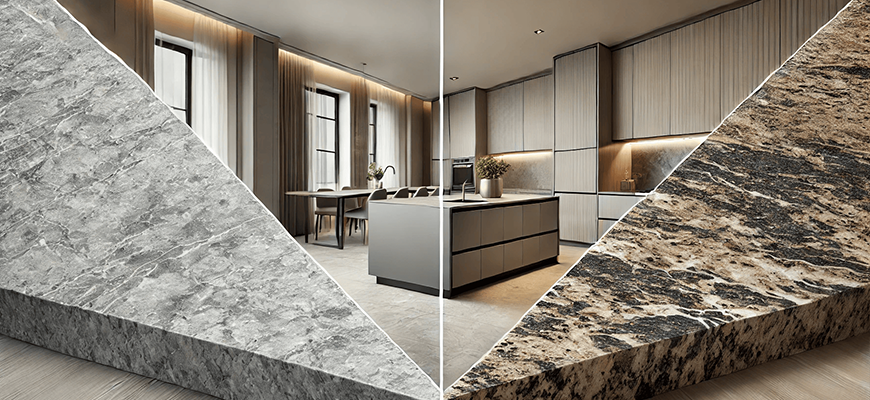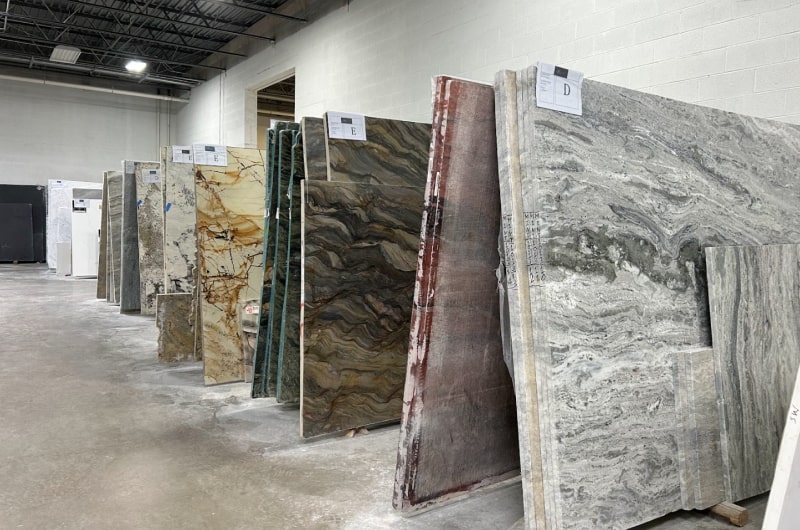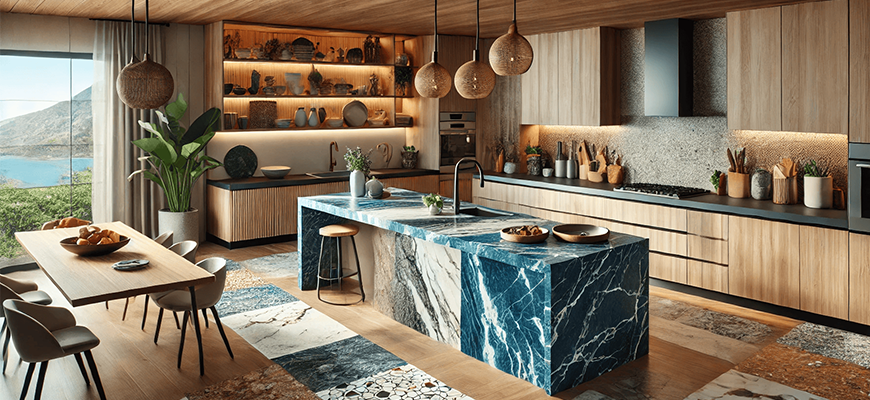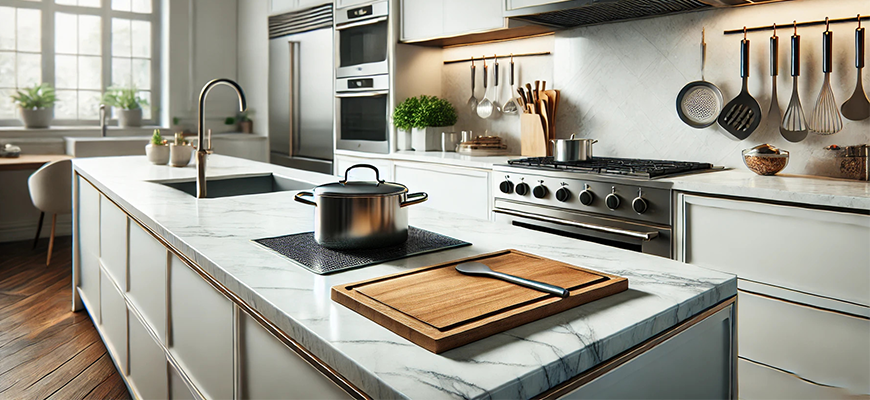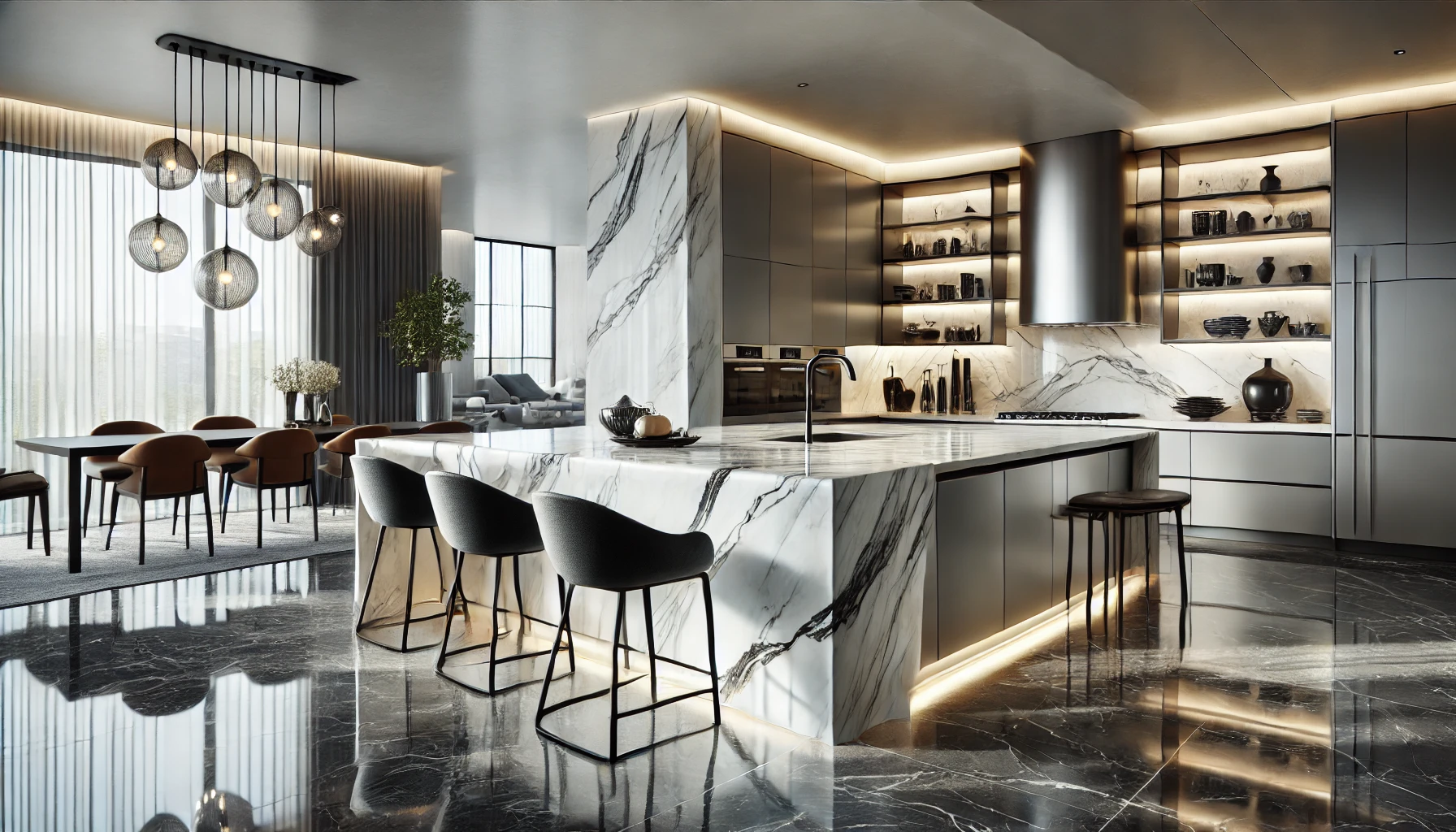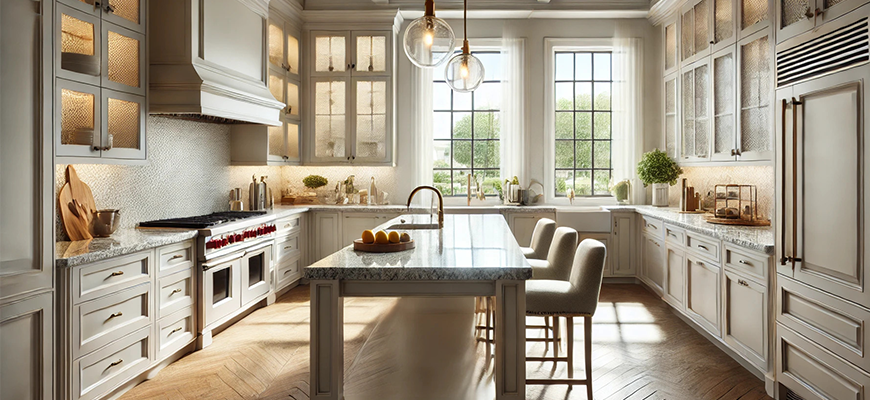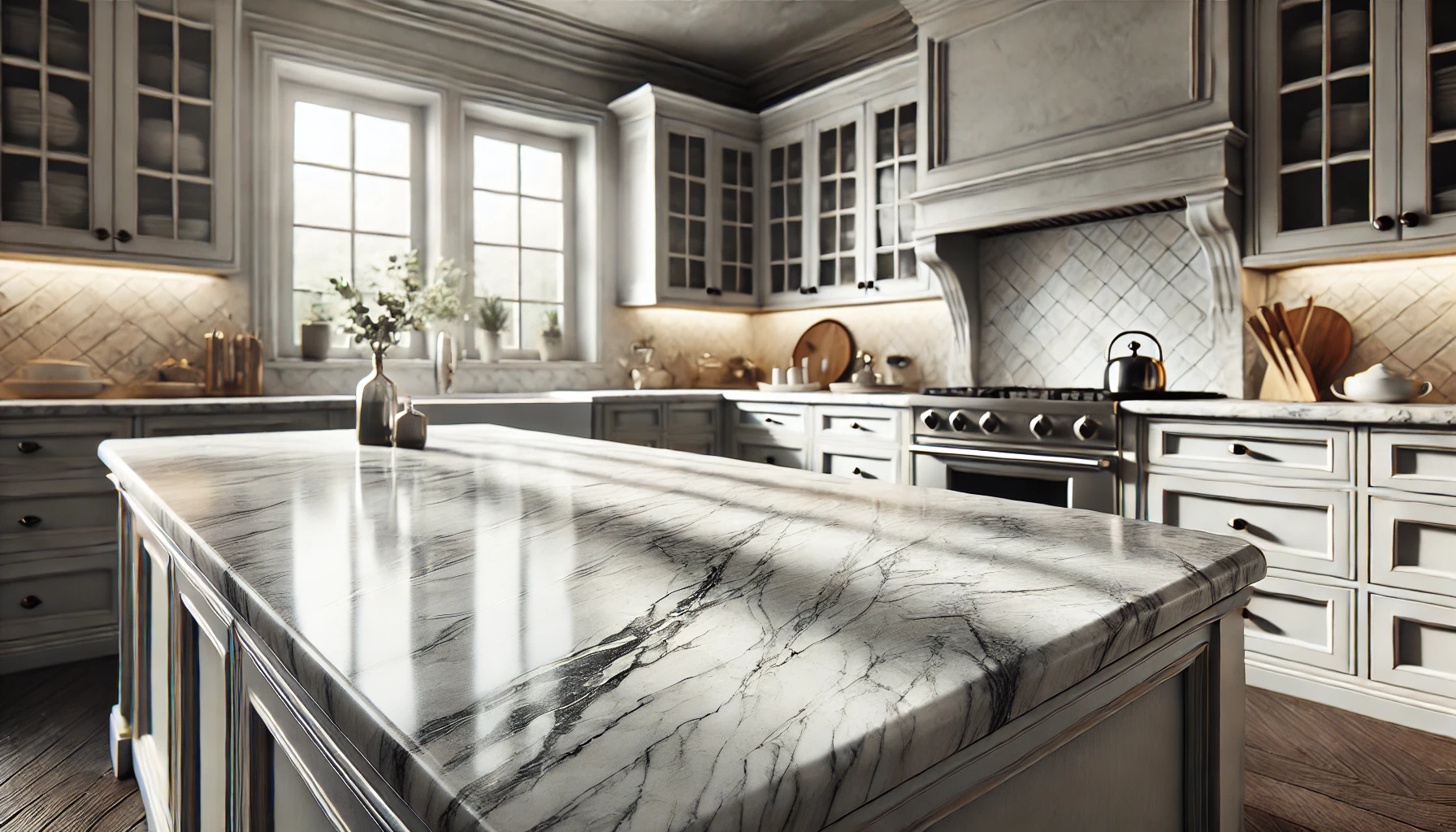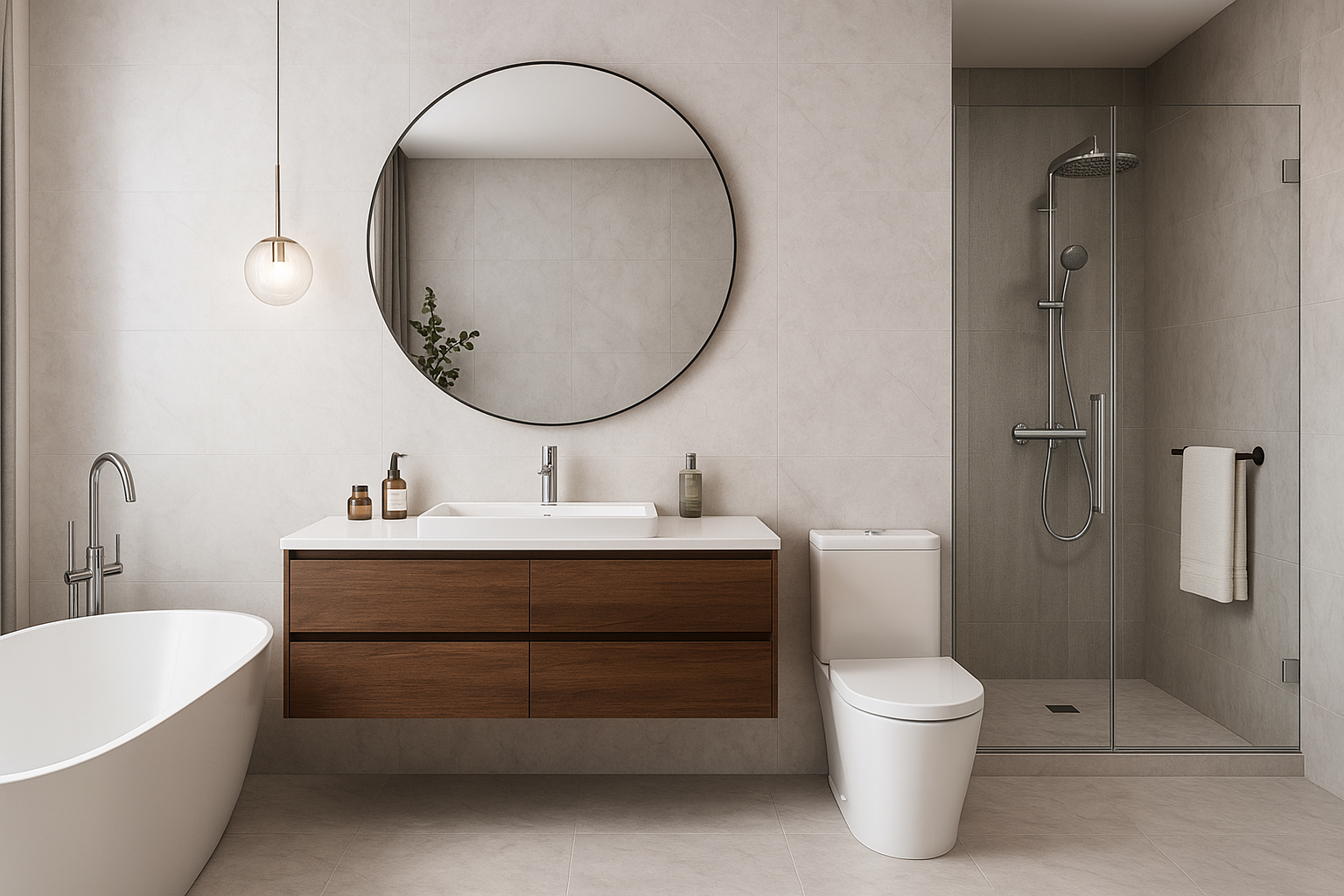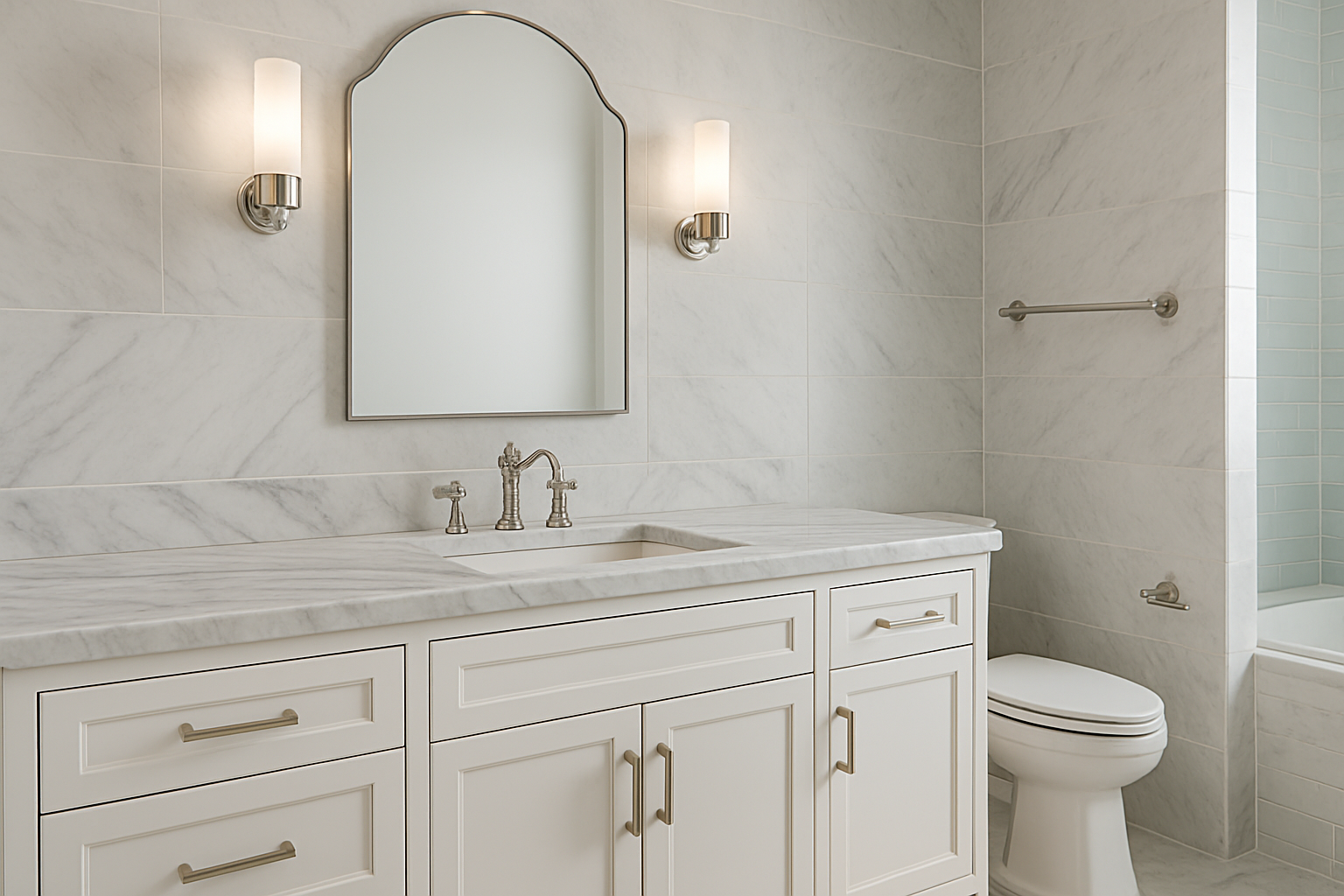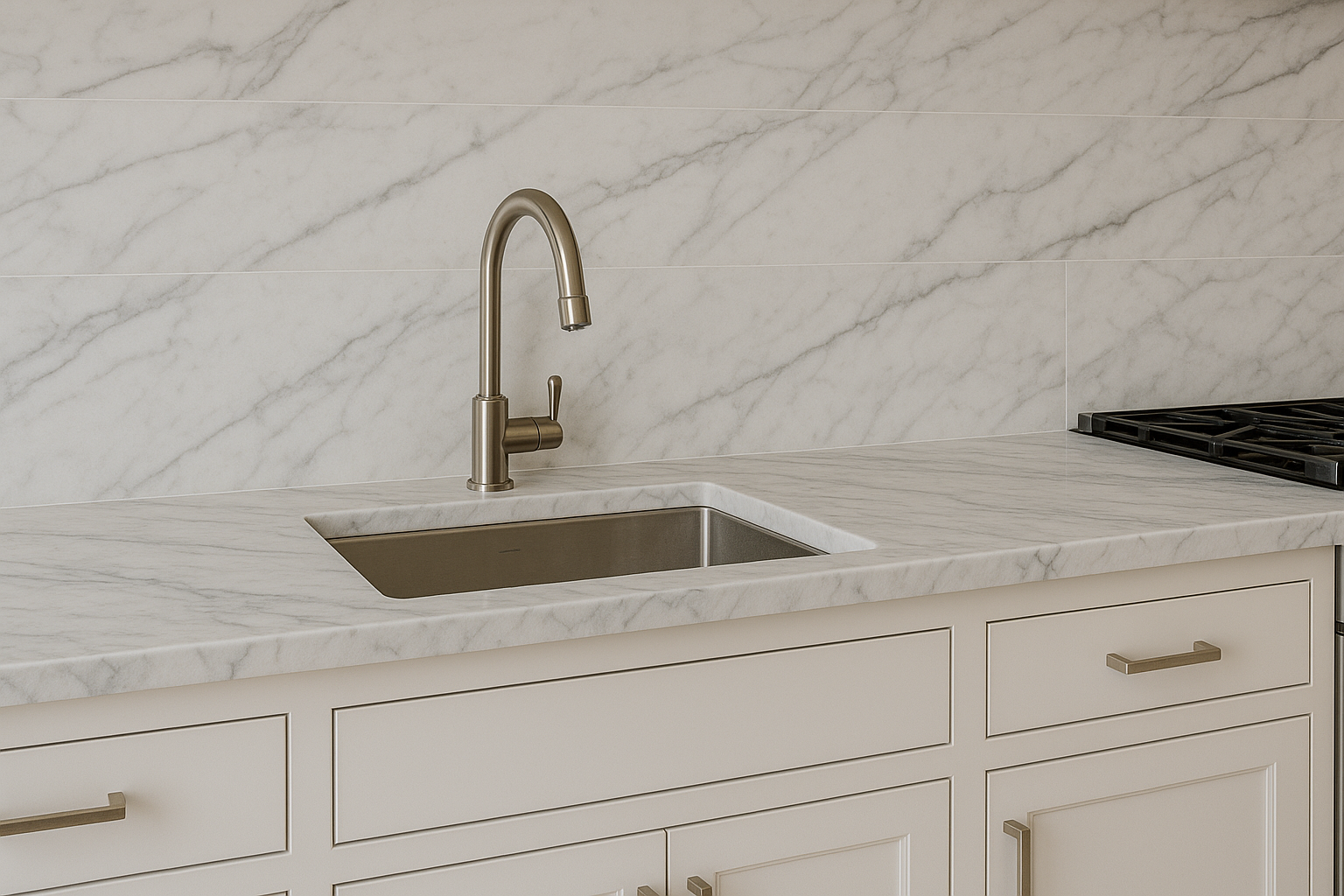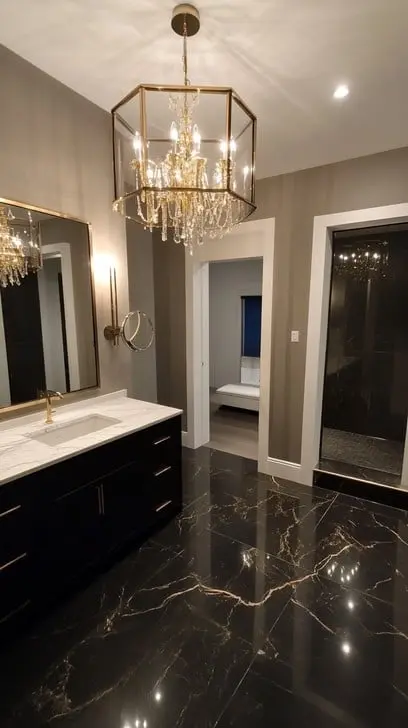When it comes to choosing the perfect countertop material for your home, quartz and granite are two of the most popular options. Both offer unique benefits, making the decision a matter of personal preference and practical needs. This comprehensive guide compares quartz and granite based on durability, aesthetics, cost, and more to help you make the best choice.
1. Durability and Maintenance
Quartz
- Durability: Quartz is an engineered stone, making it non-porous and highly resistant to stains, scratches, and cracks. It’s ideal for busy households.
- Maintenance: Easy to maintain. Requires only regular cleaning with soap and water and doesn’t need sealing.
Granite
- Durability: A natural stone that’s exceptionally durable but porous. It’s resistant to heat and scratches but can stain if not sealed properly.
- Maintenance: Requires periodic sealing to maintain its resistance to stains and damage. Cleaning with non-acidic solutions is recommended.
2. Aesthetic Appeal
Quartz
- Appearance: Available in a wide variety of colors and patterns, often mimicking natural stone. Its uniform look is ideal for contemporary designs.
- Customization: Engineered to match any design aesthetic, offering consistent patterns and colors. A well-known example is the aurataj quartz countertop, which reflects the consistent patterns and low-maintenance benefits commonly associated with engineered quartz surfaces.
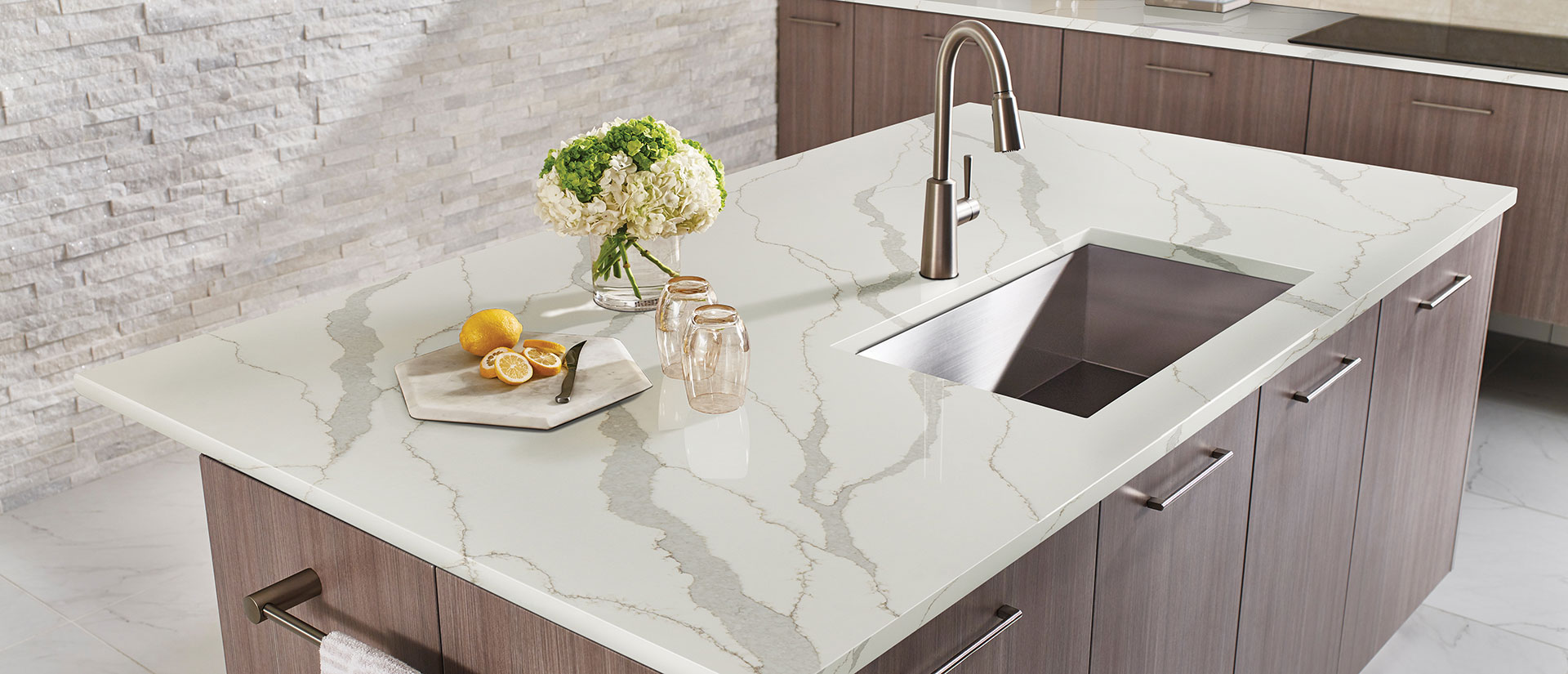
Granite
- Appearance: Each slab is unique, showcasing natural variations in color and pattern. Perfect for adding character and a sense of luxury.
- Natural Beauty: The organic appeal of granite’s veining and color variations makes it a favorite for traditional and rustic designs. A distinctive option is typhoon bordeaux granite, known for its natural veining and color variation that highlight the unique character of granite countertops.
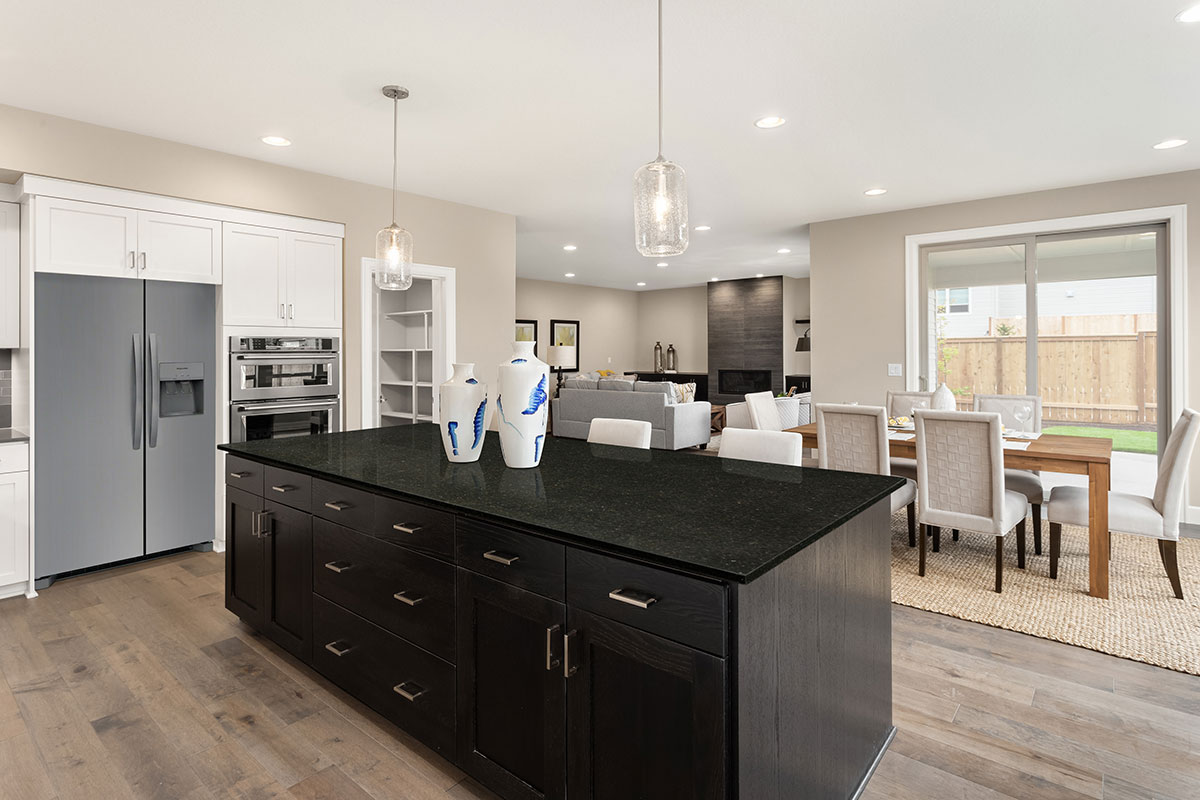
3. Cost Comparison
Quartz
- Cost: Generally ranges from $50 to $150 per square foot, including installation. Prices depend on the brand and complexity of the design.
Granite
- Cost: Typically ranges from $40 to $200 per square foot, including installation. Exotic granite varieties can be more expensive.
4. Environmental Impact
Quartz
- Sustainability: Made using a mix of natural quartz and resins, which may include recycled materials. Some brands focus on eco-friendly production.
Granite
- Sustainability: A natural product, but quarrying and transporting granite can have a significant environmental impact. Locally sourced granite can reduce the carbon footprint.
5. Longevity and Resale Value
Quartz
- Longevity: Can last decades with proper care. Its uniformity appeals to modern buyers, adding resale value.
Granite
- Longevity: Equally long-lasting. The uniqueness of each slab can be a selling point for those who value natural materials.
Conclusion
Choosing between quartz and granite depends on your priorities. If you’re looking for low-maintenance, consistent aesthetics, and a modern feel, quartz is the way to go. On the other hand, if you prefer natural beauty, uniqueness, and heat resistance, granite is a timeless choice. Both materials are durable and can elevate the elegance of your kitchen or bathroom.
Still unsure which material is right for you? Visit Royal Marble & Granite in Pine Brook, NJ, to explore our extensive collection of quartz and granite countertops. Our experts can guide you through the selection process to ensure you find the perfect fit for your home. Call us at 973-227-3451 or stop by our showroom today!
FAQs
- Which countertop material is better for a busy kitchen? Quartz is non-porous and easier to maintain, making it ideal for high-traffic kitchens.
- Does granite require a lot of upkeep? Granite requires periodic sealing to maintain its resistance to stains and damage, but it is otherwise easy to clean.
- Are quartz countertops heat-resistant? Quartz is heat-resistant to a degree but can be damaged by extreme temperatures. Using trivets is recommended.
- Can granite countertops be repaired if chipped? Yes, chips in granite can often be repaired using resin or epoxy fillers.
- Which material is more eco-friendly? Quartz with recycled content is more sustainable, but locally sourced granite can reduce environmental impact by minimizing transportation emissions.

